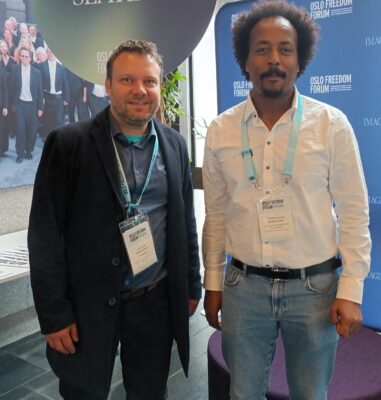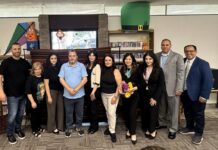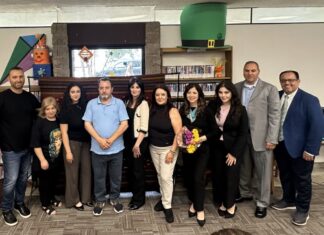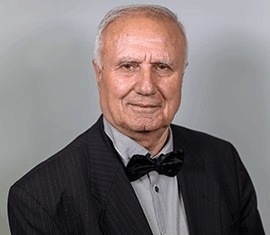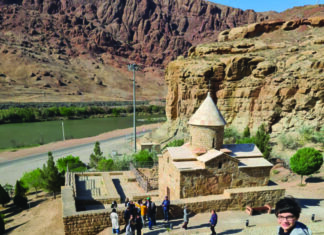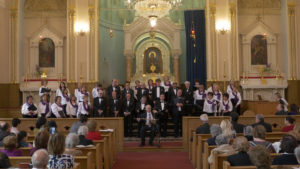 By Robert Dulgarian
By Robert Dulgarian
CAMBRIDGE, Mass. — The opening of the centenary of the Armenian Genocide saw an extraordinary wave of commemorations. Lectures, symposia, exhibitions, concerts, marches, petitions, and book publications created a surge of interest that extended beyond Armenian communities to engage the interest of mainstream media perhaps more highly than at any time since the 1920s. The closing of the year-long period has been more muted; the hopes for breakthroughs on recognition, never strongly entertained, continue to be deferred, while events on the eastern and western borders of the Armenian Republic and Artsakh suggest a darker near future than Armenians had dared to hope for in April 2015. Yet the Armenian cause lives on, strengthened on many fronts by new voices.
The Erevan Choral Society’s Concert, “In Commemoration of Our Sainted Martyrs of 1915,” was held in the sanctuary of the Holy Trinity Armenian Apostolic Church in Cambridge, MA, on April 17.
The former pastor of Holy Trinity, Fr. Mampre A. Kouzouian, opened the program with an eloquent evocation of the dire situation in Artsakh.
The extremely able keyboardist Nune Hakobyan performed on organ. Guest soloist David Ayriyan on kamancha, backed by composer Konstantin Petrossian, music director and conductor on organ, thrilled the audience with a rendition of the traditional Otar Amayee and Dle Yaman that were breathtaking in their combination of complex ornamentation and exquisitely modulated tone. Mezzo-soprano Gohar Manjelikian’s moving rendition of the Gomidas Karoon a picked up the link between folk and composed traditions, while her rendition of Tsaghkir Hayrenik by Yervand Yerznkyan, a world premiere, demonstrated her ample range. Composer Petrossian once again demonstrated his compositional fecundity with the choral Vartanants Aspetner while such relatively recent favorites as Krikor Pidedjian’s setting of Kevork Emin’s Der Zor, Armen Smbatyan’s Hayastan, and Petrossian’s haunting and lyrical arrangement of Akh, Vaspourakan elicited an enthusiastic response.
Also reprising an innovation from the April 2015 Genocide Centennial Concert was a series of moving recitations of such giants of the modern Armenian repertoire as Baruyr Sevag, Eghishe Charents, and Hovhannes Tumanyan by senior Holy Trinity Armenian School students Adelaida Balagyozyan, Anna Margaryan, Anush Kirakosyan and Amalia Petrosyan, as well as their younger colleagues Leila Belubekian, Marina and Lusine Gyulkhasyan, and Mary Gyulumyan. Interspersed with the musical numbers, the students’ readings testified to the intertwined aspirations of Armenian music and letters so notable in the last century, a fate that will inevitably continue to be shared.
